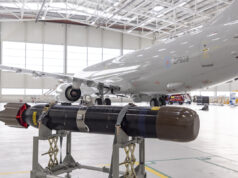The Iraq Inquiry, also referred to as the Chilcot Inquiry, covers the run-up to the Iraq conflict, the subsequent military action and its aftermath with the purpose to establish the way decisions were made.
The purpose of this is to determine what happened and to identify lessons to ensure that in a similar situation in future, the British government is equipped to respond in the most effective manner.
Sir John Chilcot said in a letter to Prime Minister David Cameron:
“My colleagues and I estimate that we will be able to complete the text of our report in the week commencing 18 April 2016. At that point, national security checking of its contents can begin.”
Chilcot said due to the length of the report being more than 2 million words in total, it would then take many weeks to prepare for printing, meaning publicationw ill take place in June or July of next year.
The inquiry heard evidence from a variety of witnesses, such as politicians, including several cabinet ministers at the time of the invasion; senior civil servants, including lawyers and intelligence chiefs; diplomats, mostly composed of British ambassadors to Iraq and the United States; and high-ranking military officers including former Chiefs of the General Staff and Chiefs of the Defence Staff as well as senior operational commanders.












